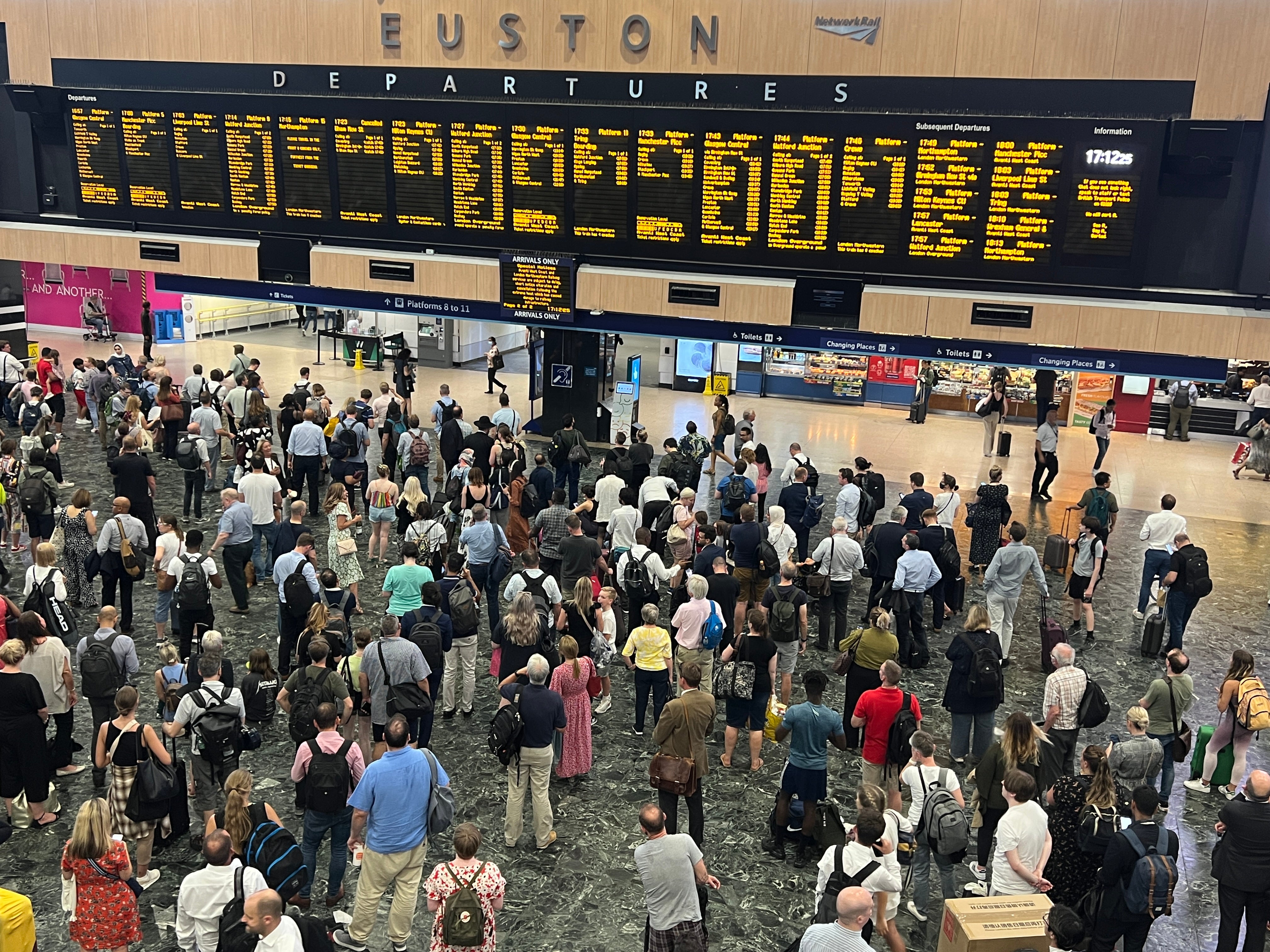Is Avanti West Coast broken beyond repair?
The Man Who Pays His Way: Among many passengers on the West Coast main line, the impression right now is that no one is in control

Your support helps us to tell the story
From reproductive rights to climate change to Big Tech, The Independent is on the ground when the story is developing. Whether it's investigating the financials of Elon Musk's pro-Trump PAC or producing our latest documentary, 'The A Word', which shines a light on the American women fighting for reproductive rights, we know how important it is to parse out the facts from the messaging.
At such a critical moment in US history, we need reporters on the ground. Your donation allows us to keep sending journalists to speak to both sides of the story.
The Independent is trusted by Americans across the entire political spectrum. And unlike many other quality news outlets, we choose not to lock Americans out of our reporting and analysis with paywalls. We believe quality journalism should be available to everyone, paid for by those who can afford it.
Your support makes all the difference.Simon Calder, also known as The Man Who Pays His Way, has been writing about travel for The Independent since 1994. In his weekly opinion column, he explores a key travel issue – and what it means for you.
Oscar Wilde’s maxim that the only thing worse than being talked about is not being talked about does not apply to the railways. As with air traffic control and nuclear reactors, the less that is heard about them in the media, the better.
The public wants rail services to run safely, reliably and without a fuss. If a train operator is in the news, it is not likely to be a positive story.
Few transport organisations have been talked about so intensively as Avanti West Coast, which runs trains between London, the West Midlands, northwest England, north Wales and southern Scotland. Occasionally.
The firm is a joint venture involving First Group and Trenitalia (the Italian state operator). It is currently running only one train an hour from both Manchester and Birmingham to the capital, rather than three. Mind the gap in the schedules.
On BBC Breakfast on Friday morning, the transport secretary, Grant Shapps, protested that this was not the case – but he was sadly mistaken.
His department signed off the reduction in services, which Avanti blames on train drivers being unwilling to work on days off and unusually high levels of sickness. The rail unions say the company should simply employ more people. The train operator is hoping to step up services soon, I understand, but the severely reduced timetable is expected to be in place until at least 9 September.
The passenger, meanwhile, is the unwilling victim in a mighty squabble that is ultimately between the government and the unions. The conflict can be summed up as: who runs the railways?
Among many passengers on the West Coast main line, the impression right now is that no one is in control.
Last Sunday afternoon my colleague, Helen Coffey, attempted a journey from Lancaster to London – the day after the Aslef train drivers’ strike, and so a particularly busy day.
“The journey didn’t get off to a smooth start after the train arrived around 15 minutes late,” she reports. “Once I was on board, it was clear that the air con wasn’t working particularly well. Part way into the journey it was announced that the card machine wasn’t working, so food and drink could not be purchased on board.
“After some ominous announcements about a possible technical issue with the train and some very slow running, we trundled into Crewe.”
This was not a scheduled stop, but Helen’s train could go no further. The passengers were told to hotfoot it to another platform to catch another Avanti service to London Euston, departing in just five minutes – the kind of obstacle course used for SAS training, I believe.
“The train was rammed with people and those without seats who were pregnant, elderly or otherwise vulnerable were strongly advised to get off. We managed to get seats, but in a carriage with zero air con. Again, the card machine on board wasn’t working to purchase drinks. The train finally departed, only to have to stop for another 15 to 20 minutes because of ‘livestock on the line’, by which point both passengers and train staff were on the edge of hysteria.
“The train manager made a wry observation once we were moving again that ‘the train should be pulling into Euston in an hour’s time barring any other issues, but knowing our luck we’ll probably hit an iceberg on the way’. We eventually made it into London, dripping with sweat, more than 90 minutes late. But at least we made it – other Lancaster-to-London services seemed to have been cancelled.”
Above all other train operators, Avanti West Coast currently looks least fit for purpose. But that is not necessarily the fault of the companies that own it, nor the people who work for it. The train operator has inadvertently become a battleground of ideologies.
On one side, a government suddenly demanding radical productivity improvements after years of inaction, and union leaders who believe they can strike their way to success by walking out until ministers cave in. There is little room – literally and figuratively – for the passenger.
Join our commenting forum
Join thought-provoking conversations, follow other Independent readers and see their replies
Comments